International Conferences, Summits & Workshops
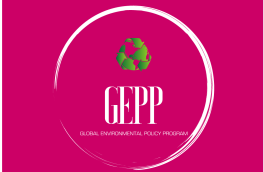
Post COVID-19 Recovery Action Plan for Informal Settlements: Balkans and Central Asia Workshops
Online, December 9-10, 2020
In the context of the ongoing COVID-19 global crisis, UNECE has started the Post COVID-19 Recovery Action Plan for Informal Settlements in the UNECE Region project. The Plan aims at providing cities with robust and efficient action measures to enhance the integration of informal settlements in the urban fabric while recovering from the ongoing pandemic crisis. The Plan is underpinned by an assessment effort on the informal settlements of four pilot countries: Albania, Macedonia, Montenegro, and Kyrgyzstan.
GEPP and UNECE co-organized two Local Stakeholder Workshops (Balkan Region Dec. 9; Central Asia Dec. 10) to facilitate the discussion of urban post Covid-19 Recovery measures, targeted in particular towards informal settlements, focusing in particular the localization process of such measures.
The event brought together local policymakers, international experts, IOs and academia in fruitful dialogue.
The event was divided in country-focused sessions. In each session, data from the assessment report of the country will be illustrated, followed by indications on the COVID-19 recovery measures by the lead authors of the Plan as specifically referred to the local context. Finally, local stakeholders discussed with both the assessment team and the experts from their perspective.
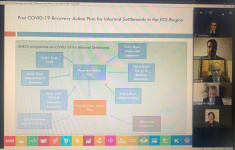
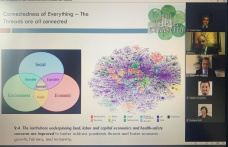
Post Covid-19 Recovery Action Plan For Informal Settlements: Validation Workshop
Online, December 2, 2020
In the context of the drafting of the Post Covid-19 Recovery Plan for Informal Settlement, designed to respond effectively the COVID-19 challenges and to increase urban resilience against future pandemic threats, UNECE and the University of Geneva organized the Action Plan Validation Workshop. The objective of the validation workshop is to present and review the main policy areas of the Action Plan, share the underpinning data collected in four pilot cities, and collect feedback from leading experts, other UN agencies, as well as local, national and regional representatives.
The validation workshop was articulated in three main areas: “Space and Infrastructure” (provisions related to buildings and land planning, physical infrastructure and utilities), “Access to Goods and Services” (provisions related to access to of food, medicine and key services);and “Inclusivity, Engagement and Justice” (community involvement, land rights, and impact of containment measures on vulnerable groups).
Each of these areas was introduced by a presentation by the lead authors of the Plan, followed by feedback provided by a panel of experts in each area. Experts come from UN Nexus Teams, Academia and Civil Society. Local, national and regional representatives contributed their input and feedback during the Discussion session of each panel.
Improving Urban Resilience in Informal Settlements
Online, 25 November 2020
In the context of UNECE’s Post COVID-19 Recovery Action Plan for Informal Settlements in the UNECE Region, UNECE and GEPP organized the thematic workshop “Improving Urban Resilience in Informal Settlements.” The workshop brought together lead experts (from UN, academia and civil society) and policymakers to discuss best practices, policies and monitoring frameworks.
The workshop focused on how to improve the inclusion of informal settlements into the urban fabric through better infrastructure and spatial planning, improvement of systems integration and efficient financing and engagement of public and private actors.
Thematic foci were Nature-Based solutions for Informal Settlements and PPP financing solutions to raise capital for interventions.
Evidence-Based Policies for Sustainable Housing & Urban Development
Belgium, Ukraine, Albania, Kyrgyzstan, Georgia - 2018-2019
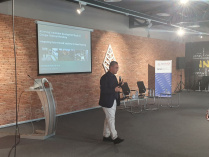

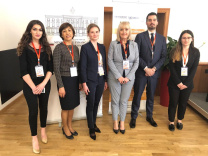
Towards Establishing the Business Case for Sustainable Infrastructures
Harvard University, 17-18 April 2019
The workshop originated from the Zofnass Program at Harvard's ongoing research on the Business Case for Planning Sustainable infrastructure indicating that having sustainability as a strategy does pays off. Sustainability is providing savings, avoided costs, and added value in different types of infrastructure projects. Thus the workshop was designed to discuss insights through case studies that use sustainability as part of the project strategy, and brought together representatives from academia, the private sector and public administration.
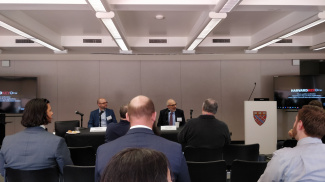
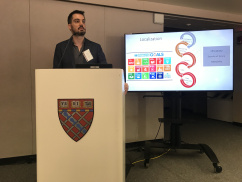
Sustainability Education for Future Urban Leadership
Palais de Nations, 8th April 2019, 13:15 - 14:30
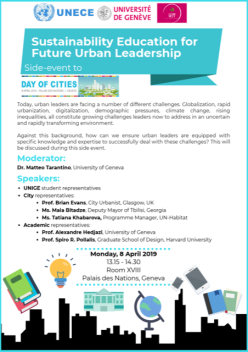
Environmental Leadership Programme for the Green Development of the Belt and Road Initiative
Turin, ITC Training Center, 9th October 2018, 15:00 - 18:00
GEPP participated in the UN-Environment / ICTILO Environmental Leadership Programme with a session on "Infrastructure system integration and sustainability Acceleration".
The session, targeted at Central Asian public officials, detailed the concepts and methods of infrasystem integration as possible responses to pressing environmental concerns. Public officials from Uzbekistan, Kazakhstan, Tajikistan and the Kyrgyz Republic participated in the event.
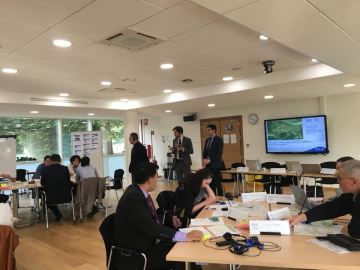
International Symposium on Sustainable Infrastructure
Fuzhou, Fujian, China - Fujian Normal University, 22-23 October 2018, 15:00 - 18:00
Infrastructure is central to achieving the Sustainable Development Goals (SDGs). It is included in SDG 9, but underlies all of the other socio-economic SDGs. At the same time, the choices that we make about the types of infrastructure we build, where we build it, and how it is designed, constructed, and operated will affect the environmental SDGs including climate actions.
The Symposium, co-organized by GEPP with UN-Environment and Fujian Normal University, brought together experts from international organizations, academic and research institutions, and the private sector to validate the centrality of infrastructure in delivering the SDGs, raise the visibility of this link, and take forward the idea of an integrated approach to infrastructure planning and development. Participants discussed the meaning of - and the need for - an integrated approach, examined the reality of infrastructure governance in different national contexts, shared good practices and knowledge, and identified a number of priorities for promoting such an approach by countries.
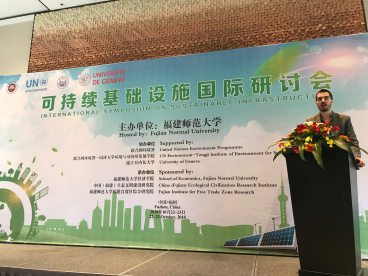
Infrastructure and Urban Sustainability: Challenges and Opportunities from the ground
Palais de Nations, 2nd October 2018, 15:00 - 18:00
GEPP Co-organized with UNECE Housing and Land Management Unit the roundtable "Infrastructure and Urban Sustainability: Challenges and Opportunities from the Ground".
Over two years after the adoption of the Paris Agreement, a variety of Sustainable Development Goals such as SDG 11 Sustainable Cities and Communities still lack an effective methodology to be effectively assessed/implemented. The elaboration of innovative methodologies and set of effective indicators related to key areas of urban sustainability thus continues to be a top priority for national, regional and local governments alike.
The roundtable provided a platform for experts to share ongoing research and best practices to effectively evaluate some of 21st century’s key urban challenges and measure progress.
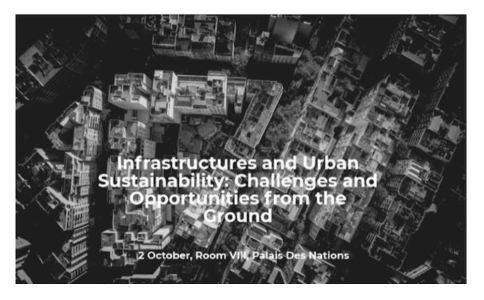
Beyond the Limits: Implementing a resilient future
Uni-Bastions, Auditorium B106, 26th November 2013, 18.30 - 20.00
The publication of Limits to Growth and the first United Nations Conference on the Human Environment in Stockholm, in 1972, have become milestones for Global Environmental Policy. Forty years later, a new report to the Club of Rome, and documents for the Rio+20 Conference, depict a world facing huge challenges. Effective responses have been rare!
Are current challenges too complex to be addressed? Does this imply there are misunderstandings? Or is there a lack of institutional capacity to address these challenges using a multi-level governance regime? Can resilience serve as a creative framework for more effective responses at local, national and international levels.

Photo: ORBISSWISS
Ian Johnson
Secretary General of the Club of Rome, former Vice-President for Sustainable Development at the World Bank
Per Olsson
Head of the Initiative on Innovation and Transformation in Socio-Ecological Systems, Stockholm Resilience Centre

RIO+20: Challenges, Opportunities and Responses
Uni-Dufour, Geneva, 10th May 2012
20 years after the 1992 Earth Summit, The United Nations Conference on Sustainable Development will be held in Rio de Janeiro in June 2012. This conference, known as Rio+20, will focus mainly on promoting a green economy and reforming the institutional framework for sustainable development.
There are numerous challenges and the international community faces increasing difficulties to reach common agreements to take action, as illustrated by the effective implementation of the Kyoto protocol. Rio+20 is a unique opportunity to redefine a global framework for action, through institutional reforms, enabling a green economy and defining Sustainable Development Goals.
Are these responses at the level of the challenges? The speakers will exchange their perspectives on issues that are increasingly treated along the “North-South” divide and give insights about what the world can expect from the Rio+20 conference.
Daniel ZIEGERER
Daniel Ziegerer is acting Head of Global Affairs at the Federal Environment Office in Switzerland. Before that he was a Senior Policy Adviser at the International Affairs Division of the Swiss Office for the Environment. He coordinates the involvement and activities of the Swiss Government with UNEP and with the CSD and represents his government in international conferences and negotiations on environmental matters. Before joining the Swiss Office for the Environment, Daniel Ziegerer worked as Policy Adviser for the Peruvian Society for Environmental Law (SPDA) in its Biodiversity and International Affairs Programme and for the Swiss State Secretariat for Economic Affairs in its Economic Development Cooperation Division.
Dr Sarah COOK
Dr Sarah Cook is Director of UNRISD since 2009. She moved to UNRISD from the Institute of Development Studies (IDS) at the University of Sussex, UK, where she had been a Research Fellow since 1996. She also worked for the Ford Foundation as Programme Officer for Governance and Public Policy from 2000-2005. Ms. Cook received her PhD in Public Policy from Harvard University.
October 28th 2010: Public Conference for the launch of UNIGE-UNEP new executive programmes
Social Impacts of Major Global and Regional Environmental Changes
People on the Move: Impacts of Climate Change on Human Well-being
(Public Conference | October 28th 2010 | University of Geneva)
Prof. Michael OPPENHEIMER, IPCC & Princeton University, USA
Dr Koko WARNER, United Nations University, Bonn, Germany


